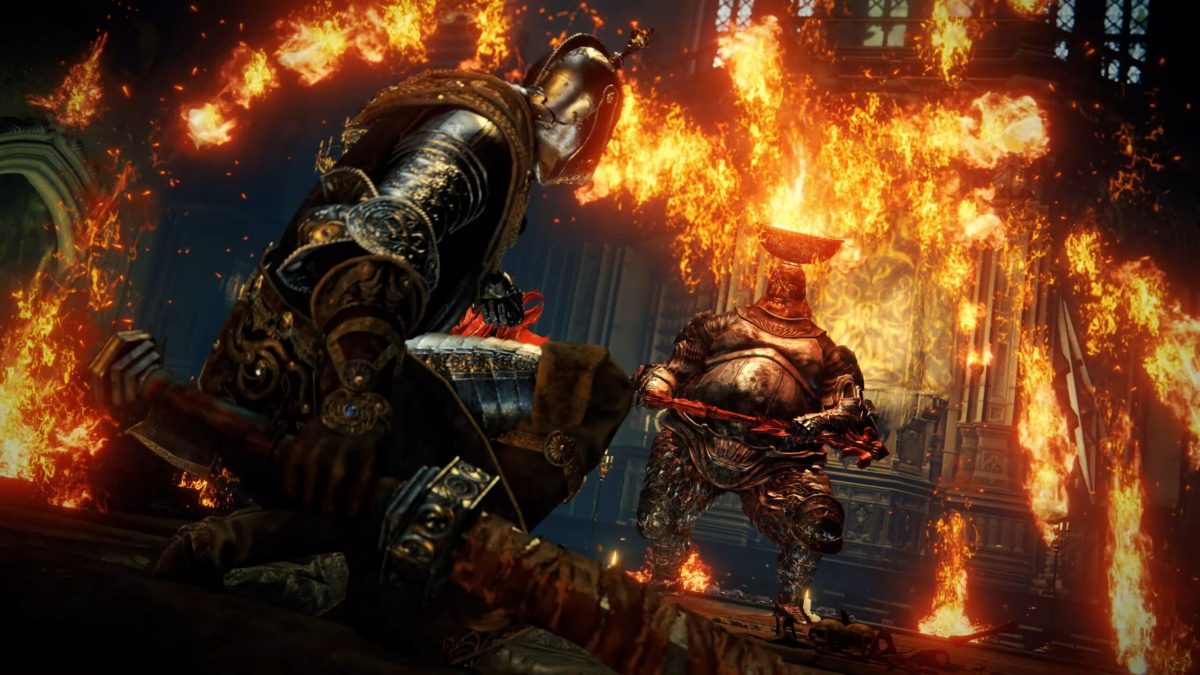Starting with Bloodborne, each time FromSoftware has put out a new action-RPG, it always raises the question: is this a good one for newcomers to jump in? The developer’s latest and arguably greatest release to date, Elden Ring, is out this week, and it’s time to revisit that question. Is Elden Ring a good entry point? The answer is… a little complicated.
I’m tempted to say yes, if only because FromSoft has taken steps to ensure that players have more options open to them when exploring the Lands Between. In their previous games, a core element involved making the decision to either push on ahead with no healing items left, or backtrack to a previous checkpoint to rest up, but also cause all the enemies to respawn.
In Elden Ring, you’re still forced to make difficult decisions like these, but the game also gives you more leeway in that regard. A new mechanic gives you the opportunity to replenish your Sacred Flasks by clearing out a group of enemies in an area. For instance, if you see a group of four Warhawks flying around in a region, you can regain two Sacred Flask charges by eliminating them.
There are Scarabs that will spawn occasionally, which also refill your charges when you kill them. This mechanic allows for longer expeditions in the Lands Between, and it also feels a lot more forgiving than in previous games because you don’t feel constantly pressured to recklessly forge ahead or surrender and reset your progress. Options are nice, options are good.
And speaking of options, while it was possible at times to just try going down a different route when you got hopelessly stuck at a boss in previous Souls games, players didn’t have that many paths open to them. There would usually only be two paths to explore –maybe three, if you were lucky– and players would often hit a wall where they absolutely had to get past a boss or be unable to progress.

While this does still hold true for Elden Ring’s critical path, the game has the benefit of being open-world, which means that there are way more paths open to you this time around. The open-world is littered with dungeons and optional bosses to take on –some are ridiculously difficult, but most are much easier and more manageable than the story bosses. This gives players plenty of opportunities to explore all their options and maybe snag a few useful items or weapons before coming back to the wall they were stuck at.
Variety is the spice of life, and Elden Ring delivers that in spades.
That being said, Elden Ring isn’t exactly your typical open-world game either. Admittedly, it took me quite a bit of time to get into the game’s rhythm simply because I had become so spoiled by modern open-world games that constantly throw quest markers and objectives at the player. It’s impossible to get lost in those games because you can just bring up your map, filter out your side quests, and see exactly where you need to go.
Elden Ring doesn’t do that. If you’re new to FromSoft’s brand of RPG, it’ll likely take some time for you to get used to the fact that there are no NPC or quest markers, and no quest journals to speak of. The good news is that Elden Ring is also free from a lot of open-world tropes that have becomes so tired over the years; you won’t be tasked with killing 10 goats and bringing their hides to a nearby church. Most of these NPC quests simply require you to progress through the story, pay attention to their dialogue, and maybe keep an eye out for them when you reach a new area so you can unlock more dialogue with them and learn more about their backstories.
With all that in mind, though, it’s doubtlessly going to take newcomers some time to adjust to the game’s structure. The critical thing here is to speak with every NPC you find, as they’ll give you hints about where to go or what to do next.
And if all else fails, the game does also drop some visual clues about where you need to go to progress the story. If you take a look at your map, you’ll notice that some of the Sites of Grace have a bright yellow flame pointing towards a direction.

These flames are essentially guiding markers that will literally point you in the right direction of where you need to go, and should give you a general idea of how to proceed next. It’s not going to hold your hand, but at least you’ll never be completely lost.
If all that sounds thrilling and exciting, I’d highly recommend giving Elden Ring a go. Running into a wall and getting stuck on a boss for hours is inevitable; it’s all part of the experience. But every Soulsborne game has a point where things will just fall into place for the player, and it’ll feel like everything has finally clicked. That’s when it gets good, and when you’ll know that the game has its hooks in you.













Updated: Feb 24, 2022 09:41 am